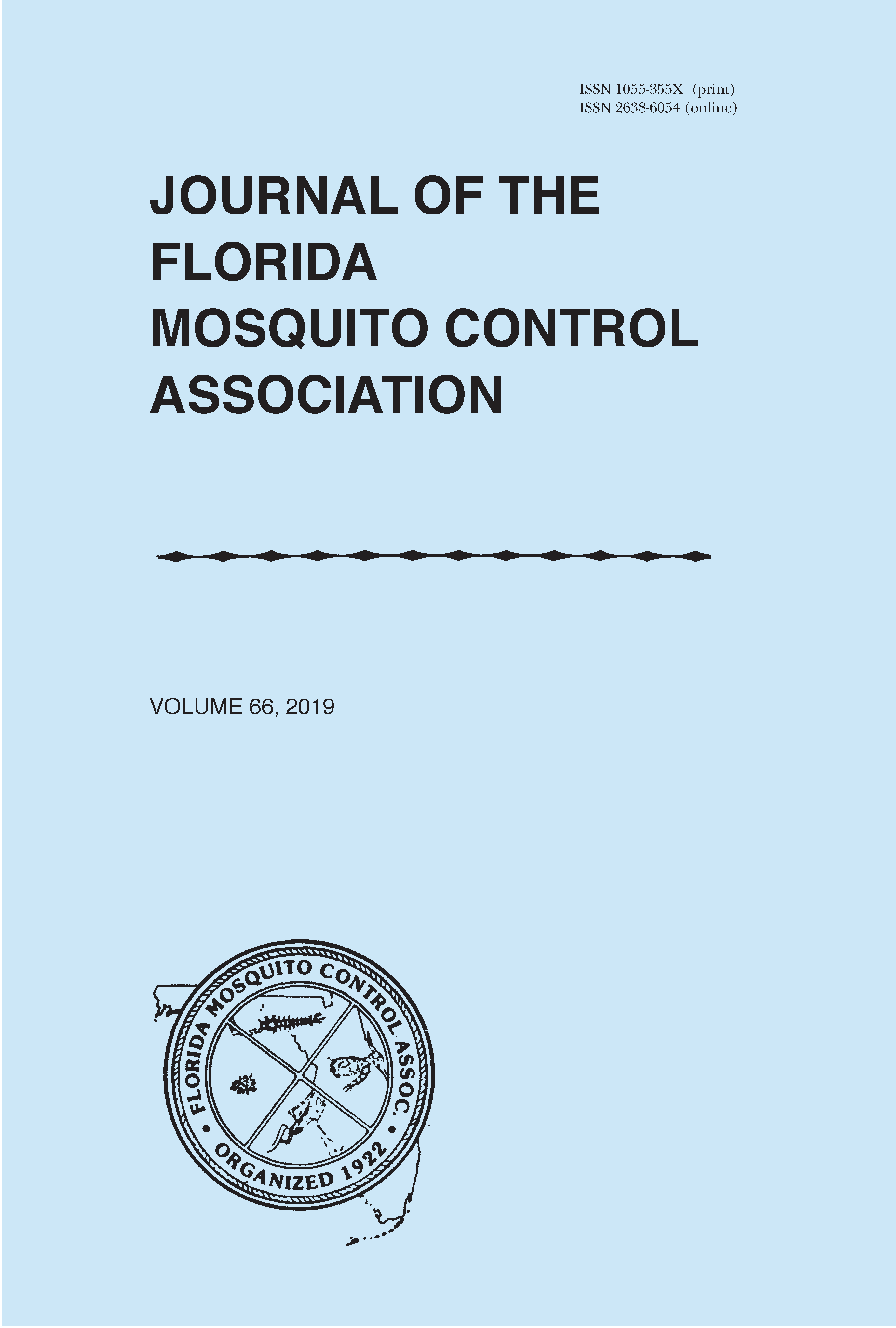EVALUATION OF PYRETHROID AND BOTANICAL BARRIER INSECTICIDES AGAINST AEDES ALBOPICTUS IN THE LABORATORY AND FIELD
DOI:
https://doi.org/10.32473/jfmca.v66i1.127623Abstract
Outdoor residual insecticide applications are useful for preventing or reducing mosquito populations at focal areas. Until recently, pyrethroids have been the only option for barrier sprays in mosquito control. In this study, three pyrethroid (Onslaught, Cyzmic CS, DeltaGard) and two botanical (Nature-Cide, Essentria IC3 ) outdoor residual insecticides were comparatively tested at low, mid, and high label rates against adult Aedes albopictus in both laboratory bioassays and field trials in St. Augustine, FL, from May-August 2017. Bioassays indicated NatureCide and Cyzmic CS were the most toxic across all three dilution ratios followed by DeltaGard, Onslaught, and Essentria IC3 , respectively. In field trials Nature-Cide and Onslaught were the only products that reduced mosquito abundance at the low rate. However, at the mid rate NatureCide and Onslaught caused ~90% percent reduction of adult female Ae. albopictus in the field, the highest of all tested products. The performance of DeltaGard (79% reduction in field counts), Essentria IC 3 (64%), and Cyzmic CS (36%) in the field were not similar to the laboratory results. The universally high performance of Nature-Cide indicates that mosquito control operations should expand consideration to botanical based insecticides for field operations.

